How to Prevent and Handle Toddler Tantrums in Public
When your child is having a meltdown, here’s how to prevent and handle toddler tantrums in public.
“NOOO!!!” My four year old yelled, “NOOO!!!” He repeated as he jumped out of the opened door of our parked van and dashed across the walkway as if he was running away from a hungry bear. The church service had just ended, and we told the kids that two of the boys will go to grandma’s house for a few hours while we grab lunch and go to the park with the rest.
My little boy really wanted to go to grandma’s, and instead, he was told he’d hang out with mommy and daddy. The kids take turns, and it wasn’t his turn to go. His little body was full of big feelings, and the only thing he could muster was a loud “NO!” on repeat.
I was shocked, to say the least. This was a sweet little boy who loved hugs and hanging out with mama. I had never seen him like this, and especially not in public. The parking lot was full of people we knew and saw every week, and I’m sure I was not the only one shocked by my child’s outburst.
I’m not a perfect mom, and neither will I ever be. But I’m a mom who learns from her mistakes. That day, I was too shocked to analyze the whole situation to figure out what triggered my son’s meltdown. I was too flustered to comfort him. All I wanted is for him to stop yelling and running from us like we were about to eat him. My husband eventually caught up with our discomposed little boy, put him in the car, and we went home.
Looking back, it all makes sense. The church service lasted longer than usual, and since we don’t take food to church with us, he was hungry. He might have been more tired than usual because we went to a bouncy house the day before. It was his nap time, so he was also sleepy. He might have gotten excited about going to grandma’s house and we failed to tell the kids beforehand whose turn it was to go. All those things came together to make a concoction for a complete meltdown.
Whether your child throws tantrums often or he’s thrown you for a loop with a new outburst, here’s what you can do to prevent toddler tantrums in public, and what you can do if one is in full swing.
Preventing a tantrum
Prepare. Don’t run errands if your child is tired or hungry. If you have 15 minutes before your child’s nap time, it’s not a good idea to take him grocery shopping. If you know you’ll be out for a while, have snacks, and have plan B for nap time.
Inform him. Tell him where you’re going, what for, and what you’re going to do there. “We’re going to the grocery store to get things for dinner. We need bread, potatoes, carrots, and chicken. We can also get some bananas since you like them so much.” When your child knows what to expect, he’ll be less likely to get upset.
Move fast. If you know your child often has meltdowns if he’s in the store for longer than 20 minutes, move fast and get out before 20 minutes are up.
When a tantrum is brewing
Ask him to help. When you’re at the store, and you see your child getting upset, get him involved. Ask for his help to hold the grocery list, to hold the bag while you put carrots in it, or to pick carrots with you. Kids love to feel important. Thank him for his help, and encourage him with words like “I’m so happy I have such a great helper!”
Tell him a story. If your child is getting antsy and whiny, tell him what you’ll cook with the veggies you’re getting. Tell him a story about him when he was a baby. Or tell him a made-up story with him in the main role.
Play a game with him. If he can count, ask “How many pink shirts can you spot?” Or, “Tell me all the words you can think of that start with the letter “A”. I’ll help you. Apricots. Do you remember the fruit that was next to the bananas? It starts with A. Yes, apples!” Keep your little one’s mind occupied.
Make him laugh. Make a funny grin, tell a funny joke, or remind him of something funny he said earlier. Laughter is a great cure for the blues for people of all ages.
Find alternate ways to say “no”. When your child wants a toy or candy he can’t have, you can say, “That’s a great idea, let’s put it on your wishlist.” Here are more ideas about how to say NO to your child in a positive way. Tip: Use the wishlist, get things for him from that list once in a while, whether it’s for a birthday party or a little surprise for good behavior. If you add things to the wishlist and then forget about it, your child will not value it. This post contains affiliate links. This means if you make a purchase after clicking a link, I will earn a small commission, but it won’t cost you a penny more. Click here to read my full disclosure policy.
Have a rescue stash in your bag. Bring his favorite snack, a toy he loves, a book, or something fun like this buckle toy. It’ll keep your little one busy and will give you a few minutes to wrap up grocery shopping. Tip: When your child is done playing with it, put it back in your purse. If he has access to it any time he wants, he won’t be as excited to see it at the grocery store when you’re trying to save the day by keeping him occupied.
Use calming words. This list of powerful parenting phrases includes a few phrases you can use when your child’s temper is turning a bit too warm. Speak to him calmly and with understanding. Saying something like, “It must be tough to stay in the cart all this time. I think I’d get tired too if I were you.” Then ask if he wants to help you so you can finish up shopping faster.
When your toddler is having a meltdown
Stay Calm. Let’s face it. Staying calm when your child is screaming as if it’s the end of the world is practically impossible. You may not feel calm, but you need to act calm. Your child’s emotions may be unstable, but he needs you to be stable for him. When there’s a calm adult next to an upset child, the child has nothing to fuel his temper. But how do you keep calm when you don’t feel calm? Get tips from this post, How to Stop Yelling at your Child. Cherry-pick those ideas that work while you’re on the go.
Stick to your word. If you said no, don’t give in when your child whines or throws a tantrum. He needs to know that you mean what you say, and he won’t get what he wants by screaming.
Don’t threaten. Besides the fact that threatening is not a healthy parenting strategy altogether, when your child is screaming, he won’t listen to your threats, and this will move you right out of your calm state.
Give him a choice. Ask him if he wants to go to the car to calm down, or if he will calm down at the store. If he doesn’t make a choice, choose for him.
Take him to the car. When the meltdown is getting too much to handle, take him out of the store to calm down. Whoever said abandoned carts don’t exist in physical stores didn’t see a strong mom handling a toddler tantrum in public well. When you’re both in the car, say, “I understand you’re upset because you want that chocolate bar. It’s time to calm down now. I am going to wait until you’re calm, and then we will go back to finish our shopping.”
Go home if you must. If you’d rather go home than finishing shopping, go for it. Use plan B for dinner, and when your already-calm child asks for a banana, gently remind him that you don’t have it because your shopping trip was cut short and you didn’t get to buy his favorite fruit. Don’t make your words sound mocking or accusatory. You’re simply informing him that there was a natural consequence that followed his earlier behavior.
Remember, your child is a person with feelings. He is full of emotions and doesn’t yet know how to express them in a healthy way. Sympathize with him.
Don’t think that people see you as a bad mom. When you’re in a public place, it’s easy to imagine that every time your child throws a tantrum, everyone around thinks you’re doing something wrong as a mom. Most people around you are either raising kids themselves or raised them at another point in life. They’ve had their share of toddler tantrums in public. They understand how you feel because they’ve been there too. Don’t overestimate the looks you get when your child is having a meltdown. If you look closely, most of them are supportive and understanding, and some even admiring.
But of course, there are always those few who will give you the side-eye and maybe even say something out loud to their shopping partner. Stop worrying about what they think of your parenting abilities. It’s none of their business to criticize you and it’s none of your business to care about their opinion. So stop. Your child is learning how to behave in public. Learning takes making mistakes, and it takes a calm, stable adult that will not be steered by emotional outbursts. It takes an adult who will not be influenced by an occasional side-eye from a stranger.
After your toddler has calmed down
Troubleshoot with your child. When you’re both calm, begin a conversation. Tell him you want to talk about what happened at the store. Hear him out, acknowledge his feelings, and make a plan for next time. Ask him what you both can do differently to avoid meltdowns. Write down all the ideas, and be prepared the next time you’re planning to run errands with your child.
Do what you can to prevent a tantrum, distract your child if you see one brewing, stay calm and stand your ground when he has a full-blown meltdown. This will help your child learn that throwing a tantrum will get him nowhere, and as he watches you handle a difficult situation well, he will learn by your example.
Related Posts:

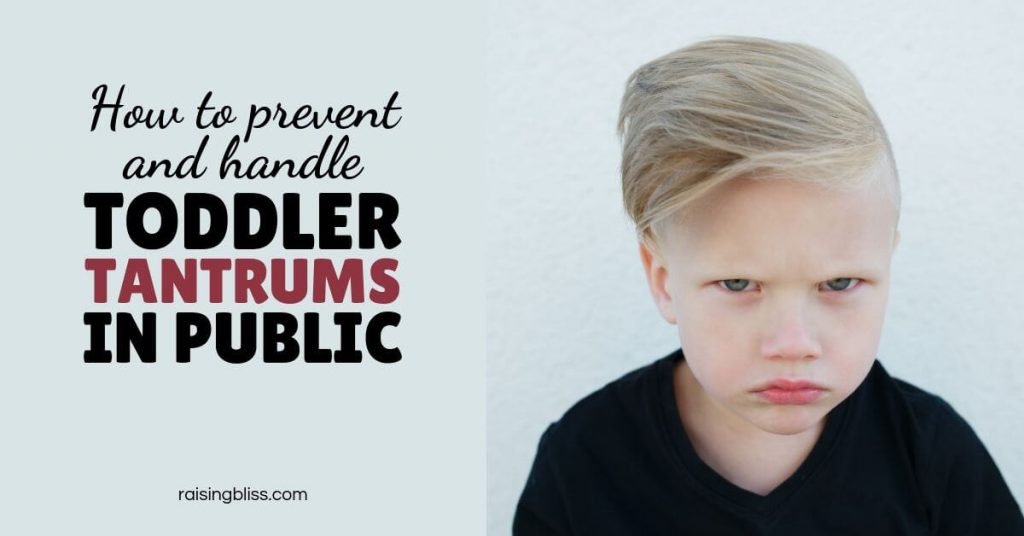
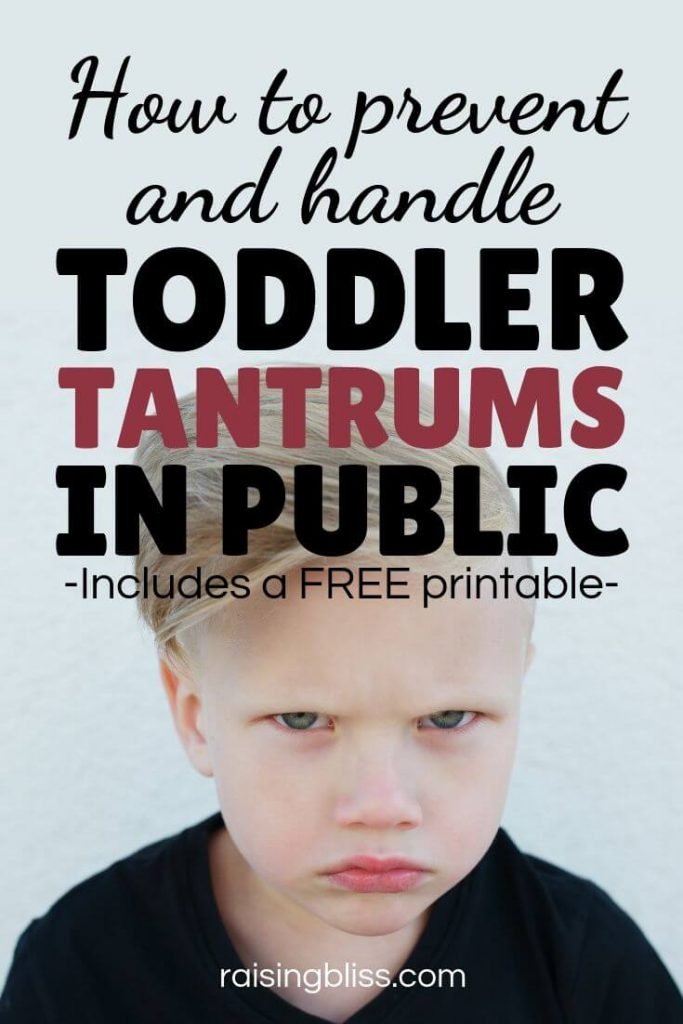
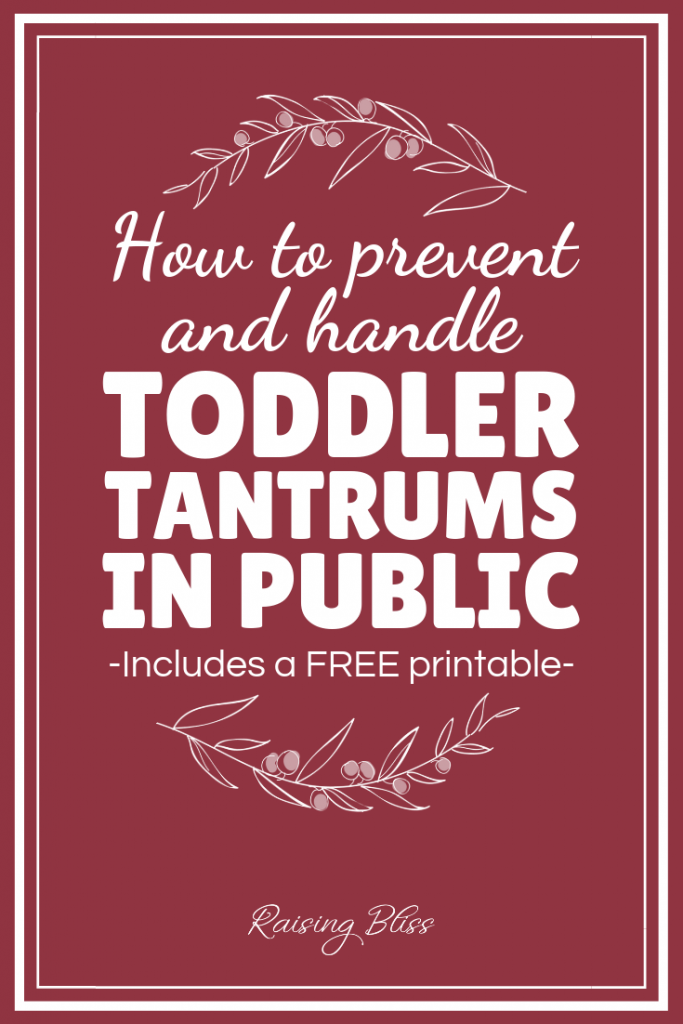
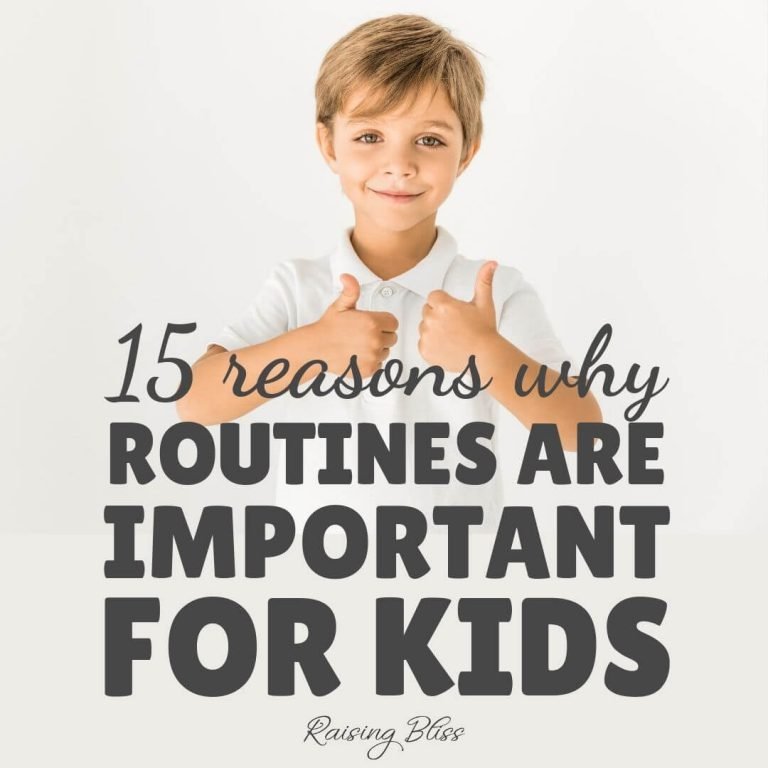
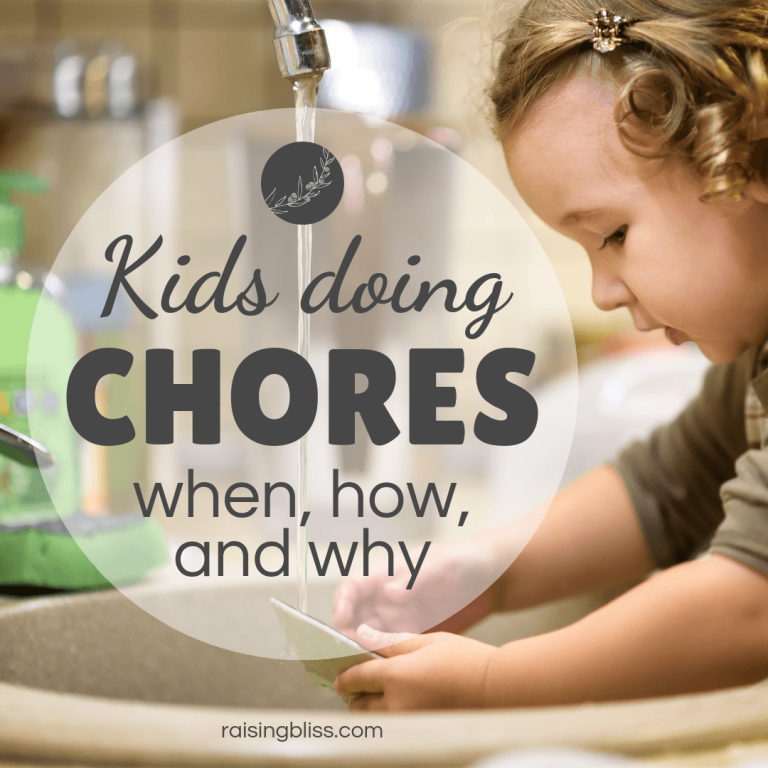
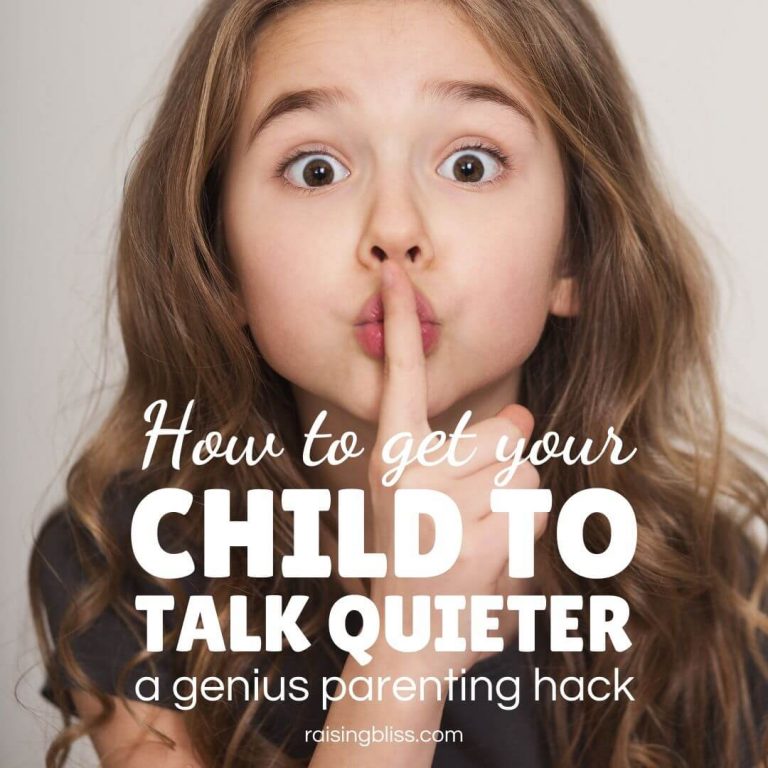

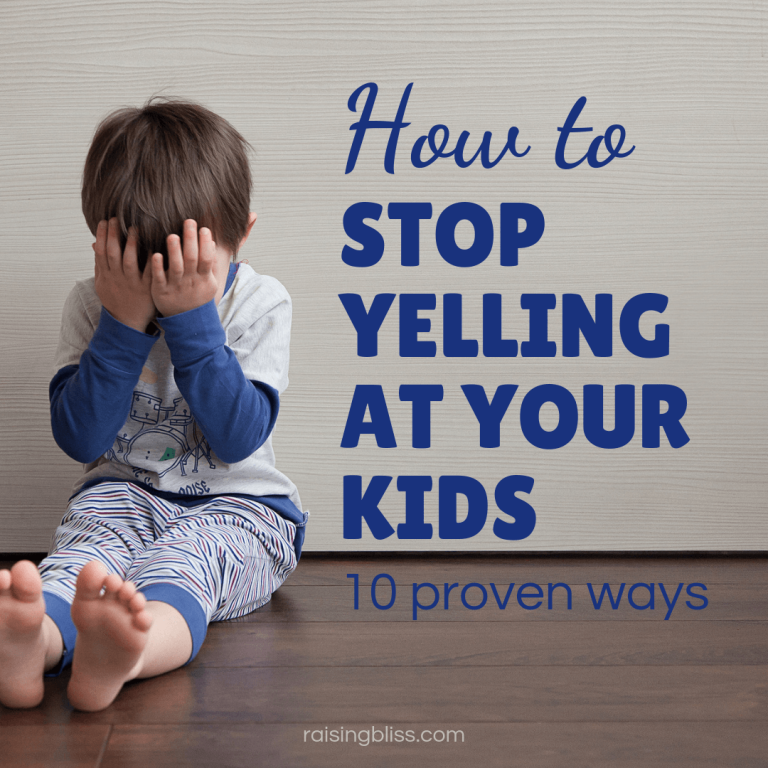
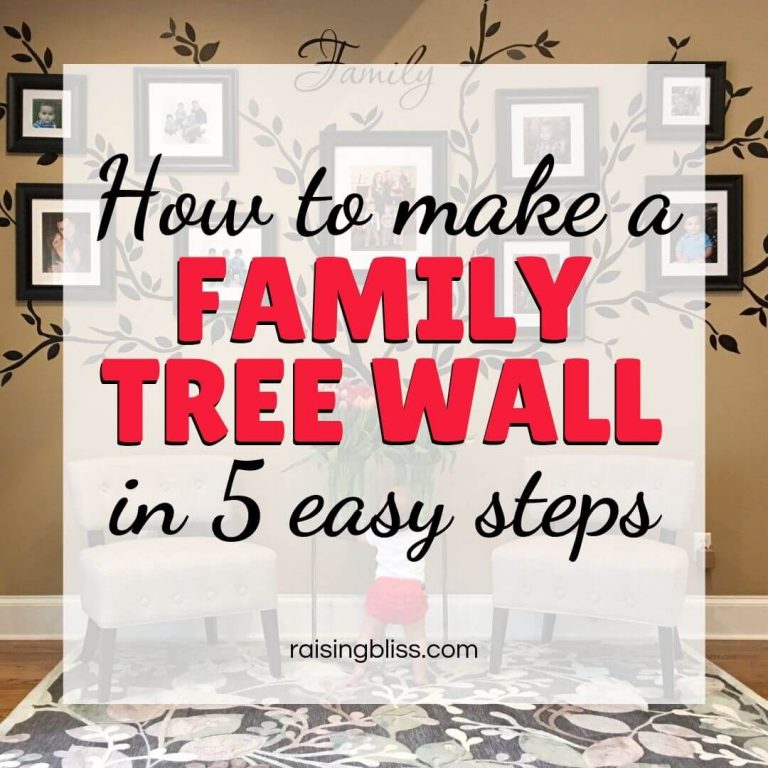
Larisa this is such a great list, thanks for posting it!
My son is 1 and I notice if I even try to take him out when he’s hungry or tired he is a completely different baby.
As he gets older I will definitely be keeping this list within arms reach. 🙂
Thanks,
Christine
Taking out a fed and well-rested child makes a huge difference. I’m so glad you found these tips useful, Christine! ❤️
Hi Larisa,
Wow, this is so great and timely.
I have a two-year-old son and it has been so hectic to deal with him in public. He likes throwing himself to the ground. But I also noticed that I tamper with the normal routine and so now we are fixed to our routine. if its nap time I make sure he sleeps and it has been easier on us.
Thanks for the tips. They will really help me as he grows older.
It’s my first time reading your blog and can,t wait to read more from you. They are so educative.
Happy to hear this helped, Melissa! ❤️